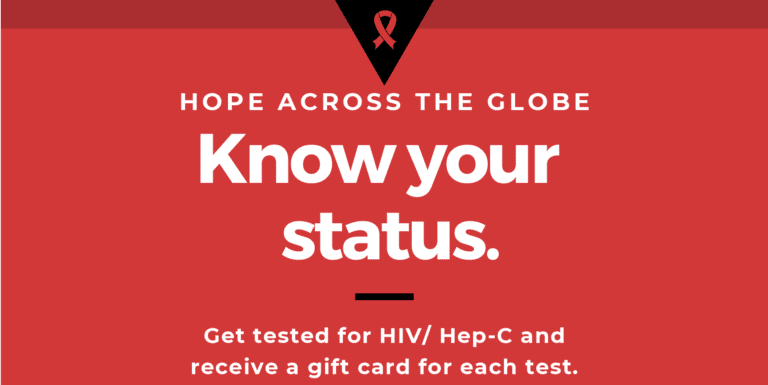Can You Be Born with an STD?
In the landscape of sexual health, a question often arises: “Can You Be Born with an STD?” Contrary to common belief, the answer is affirmative. At Hope Across The Globe, our commitment to dispelling myths and promoting comprehensive awareness extends to exploring the nuances of congenital STD transmission. In this article, we’ll unravel the complexities surrounding the possibility of being born with an STD. With our mission to provide accessible healthcare, including confidential STD testing in Jacksonville, FL, we aim to empower individuals with knowledge about congenital STD risks.
1: Understanding Congenital STD Transmission
– Overview of Congenital Transmission
To grasp the complexities surrounding the prospect of being born with a sexually transmitted disease (STD), it is crucial to delve into the concept of congenital transmission. This intricate process unfolds when an expectant individual with an STD inadvertently transfers the infection to their baby at different stages—during pregnancy, childbirth, or even through breastfeeding. The journey of congenital transmission commences within the protective confines of the uterus, and numerous factors come into play, influencing the likelihood of transmission.
– Common STDs Passed from Mother to Child
Understanding the specific STDs that are more susceptible to congenital transmission is pivotal. This section delves into the nuances of common infections such as syphilis, HIV, herpes, and chlamydia, shedding light on their unique transmission dynamics and the potential repercussions they can have on the newborn.
Syphilis, a bacterial infection caused by Treponema pallidum, can be transmitted from a mother to her baby during pregnancy or childbirth, leading to congenital syphilis. The impact can range from mild symptoms to severe developmental issues, underscoring the importance of timely detection and intervention.
HIV, the virus responsible for acquired immunodeficiency syndrome (AIDS), can be transmitted from an HIV-positive mother to her baby during pregnancy, childbirth, or breastfeeding. Antiretroviral medications and proper medical management during pregnancy significantly reduce the risk of transmission, highlighting the critical role of prenatal care in mitigating the impact on the newborn.
Herpes simplex virus (HSV) presents unique challenges in congenital transmission, with the risk of transmission varying based on whether the mother has a primary or recurrent infection. The section elucidates the complexities surrounding herpes transmission during pregnancy and childbirth and explores preventive measures to minimize the risk of neonatal herpes.
Chlamydia, a common bacterial infection, can also be transmitted from an infected mother to her baby during childbirth. While newborns may not exhibit immediate symptoms, the infection can lead to serious complications if left untreated. This segment provides insights into the dynamics of chlamydial transmission and emphasizes the importance of early detection and intervention to safeguard the well-being of the newborn.
2: Factors Influencing Congenital STD Transmission
– Timing of Infection During Pregnancy
Understanding the intricate relationship between the timing of maternal infection and congenital transmission is paramount. This section delves into the intricate relationship between the gestational timeline and its impact on the risk and severity of STD transmission to the developing fetus. The analysis considers various factors, including embryonic and fetal development stages, placental formation, and the susceptibility of specific organs at different points in pregnancy. A thorough examination of these temporal aspects provides valuable insights into congenital transmission dynamics, offering guidance to healthcare professionals for tailoring interventions according to the stage of pregnancy.
– Presence of Other STIs
The complexity of congenital transmission is further heightened when multiple STDs coexist. The intricate interactions between different sexually transmitted infections must be understood, unraveling the synergistic or antagonistic effects they may have on each other’s transmission dynamics. By exploring the collective impact of concurrent infections, we underscore the importance of a holistic approach to managing multiple STDs during pregnancy. We aim to empower healthcare providers to adopt targeted strategies to mitigate the compounded risks associated with the presence of multiple STIs.
– Maternal Health and Immune Status
The overall health and immune status of the pregnant individual emerges as pivotal factors shaping the landscape of congenital STD transmission. Various aspects of maternal well-being, such as general health, nutritional status, and the strength of the immune system, must be evaluated. Exploring how these factors influence the risk of transmission provides valuable insights into preventive measures and intervention strategies. By addressing the broader context of maternal health, healthcare professionals can tailor interventions to enhance immune resilience and minimize the likelihood of congenital transmission, thereby safeguarding the health of both the expectant mother and the developing fetus.
3: The Role of Prenatal Care in Prevention
Prenatal care stands as a crucial linchpin in preventing the transmission of sexually transmitted diseases (STDs) from mother to child. This involves several key components to safeguard maternal and fetal health throughout pregnancy.
– Importance of Early Prenatal Screening
Early and regular prenatal screening forms the bedrock of preventive measures against congenital STD transmission. We emphasize the critical significance of routine screenings during the early stages of pregnancy. It elucidates the importance of timely identification of STDs, highlighting the pivotal role healthcare providers play in initiating early interventions. Early detection allows for more effective management of STDs, thereby reducing the risk of transmission to the developing fetus. Additionally, there are various screening methods available to help identify different types of STDs, providing expectant parents with the knowledge needed to make informed decisions.
– Treatment Options for Pregnant Individuals with STDs
Upon the detection of an STD during pregnancy, appropriate and timely treatment becomes paramount. There are arrays of treatment options available for pregnant individuals diagnosed with STDs, and one must weigh the safety and efficacy of interventions for both the expectant mother and the developing fetus. The importance of a multidisciplinary approach involving healthcare professionals, including obstetricians and infectious disease specialists, to tailor treatment plans that prioritize both maternal and fetal well-being must be taken into consideration. By exploring the nuances of antiretroviral medications, antibiotics, and other therapeutic modalities, we aim to equip expectant parents and healthcare providers with the knowledge needed to make informed decisions about managing STDs during pregnancy.
– Counseling and Education for Expectant Parents
Counseling and education emerge as potent tools in the arsenal against congenital STD transmission. We aim to emphasize the pivotal role of providing expectant parents with comprehensive information about STDs, transmission risks, and preventive measures. Open communication between healthcare providers and expectant parents, fostering an environment of trust and understanding are equally important. By offering counseling sessions that address concerns, answer questions, and provide resources, healthcare professionals can empower expectant parents to actively participate in their prenatal care. Education about safe practices, the importance of follow-up screenings, and the potential impact of STDs on the developing fetus serve as a cornerstone for informed decision-making and proactive prevention.
4: STD Testing During Pregnancy: Ensuring a Healthy Start
Ensuring a healthy start for both the expectant mother and the developing baby begins with the proactive step of routine STD testing during pregnancy. This pivotal component of prenatal care plays a crucial role in preventing congenital transmission and fostering optimal maternal and neonatal health.
– The Significance of STD Testing During Pregnancy
The profound importance of early and comprehensive STD testing for pregnant individuals cannot be overemphasized. Routine testing serves as a proactive measure, allowing healthcare providers to detect and manage sexually transmitted infections promptly. Identifying and addressing these infections early in the gestational period significantly reduces the risk of congenital transmission. This includes the various types of STDs commonly screened for during pregnancy and the potential consequences of undiagnosed infections for both the mother and the baby. We aim to empower expectant parents with knowledge that supports informed decision-making and promotes a healthier pregnancy.
– Confidential STD Testing
Recognizing the importance of accessible healthcare services, including STD testing, here at Hope Across The Globe, we remain dedicated to providing confidential testing services in Jacksonville, FL, with our commitment to creating a safe and supportive environment for individuals seeking information about their sexual health. We assure the confidentiality of testing processes, assuring expectant parents that their privacy is a top priority. By offering a discreet and non-judgmental space for testing, we aim to encourage more individuals to prioritize their sexual health, contributing to the overall well-being of the community.
– Partner Testing and Treatment
Beyond individual testing, involving partners in the testing and treatment process is crucial for the comprehensive prevention of congenital STD transmission. We highlight the significance of partner involvement, emphasizing a collaborative approach to sexual health within relationships. The importance of open communication between partners, and breaking down potential barriers to testing and treatment cannot be overemphasized. By addressing STDs as a shared concern, we aim to encourage a united front against potential transmission risks, fostering a supportive environment for both partners to prioritize their health and the health of their unborn children. We value the potential impact of partner involvement on STD treatment adherence and overall family well-being, reinforcing the idea that prevention is a collective effort.
5: Postnatal Considerations and Breastfeeding
– Postnatal STD Testing for Newborns
Following childbirth, newborns may undergo testing for specific sexually transmitted diseases (STDs), particularly if the mother is known to have an infection. This practice is integral to early detection and intervention, ensuring the health and well-being of the newborn. The rationale behind postnatal testing and its role in promptly identifying any potential infections that may have been transmitted during pregnancy or childbirth must be understood. Specific STDs for which testing is commonly conducted, as well as the testing methods employed and the significance of early diagnosis, must also be explored. By emphasizing the importance of postnatal testing, we aim to contribute to a comprehensive approach to neonatal health and reinforce our commitment to safeguarding the well-being of infants born to mothers with STDs.
– Breastfeeding and STD Transmission
Considerations regarding breastfeeding are crucial in the context of preventing congenital STD transmission. Guidance on the compatibility of breastfeeding with different STDs must be explored, taking into account the potential risks and safe practices. By addressing the complexities associated with breastfeeding and STDs, we aim to empower new mothers with knowledge that aids in navigating this aspect of postnatal care, promoting both the health of the infant and the emotional well-being of the parent.
6: Navigating the Emotional and Psychological Impact
– Coping with a Positive Diagnosis
A positive diagnosis of congenital STD can elicit a range of emotions in parents, from anxiety and fear to guilt and uncertainty. We acknowledge the challenges that parents may face and offer guidance on seeking professional counseling, joining support groups, and accessing relevant information to navigate the emotional journey. By addressing the psychological aspects, we aim to foster resilience and equip parents with the tools needed to navigate the complexities of managing a congenital STD diagnosis in their child.
– Breaking Down Stigma and Fostering Understanding
Addressing the stigma associated with congenital STD transmission is paramount for creating a supportive environment for affected families. By advocating for open dialogue and empathy, and dispelling myths surrounding these conditions, we aim to contribute to creating a more inclusive and supportive society for those affected by congenital STD transmission.
7: Future Parenthood: Planning for a Healthy Start
– Preconception Counseling and Testing
Embarking on the journey of parenthood requires thoughtful planning, and preconception counseling and testing stand as vital components. There are myriad benefits to seeking counseling and testing before conception, ensuring a healthy start for both aspiring parents and their future babies. Identifying and addressing potential health concerns or risk factors before conception allows for proactive intervention and optimization of the couple’s overall health.
– Fostering Open Communication
A cornerstone of successful family planning is fostering open communication between partners about their sexual health. By encouraging open conversations, we aim to reduce the stigma around discussing sexual health, ultimately empowering couples to make informed choices that contribute to a healthier and more supportive family environment.
– The Role of Healthcare Providers in Preconception Care
Healthcare providers play a pivotal role in preconception care, offering expertise and support as couples navigate the complexities of planning for parenthood. By recognizing the importance of a healthcare provider’s involvement, we emphasize the value of a team-based approach to achieving a healthy start to parenthood.
8: Public Health Initiatives and Education
– Community Outreach and Education
Public health initiatives play a pivotal role in preventing congenital STD transmission. By fostering awareness at the community level, we aim to contribute to reducing the incidence of congenital STD transmission, emphasizing the power of education in promoting overall sexual health.
– Hope Across The Globe’s Advocacy
Hope Across The Globe actively engages in advocacy efforts to promote sexual health awareness with its commitment to community education, offering resources, and contributing to initiatives aimed at destigmatizing congenital STD transmission. We remain dedicated to being a catalyst for positive change through advocacy, emphasizing the importance of raising awareness, challenging societal misconceptions, and actively participating in the collective effort to create a more informed and supportive global community.
– Collaboration for Global Impact
The importance of collaboration among healthcare providers, organizations like Hope Across The Globe, and the broader community to create a global impact in preventing congenital STD transmission cannot be overemphasized. The synergistic power of collaboration, recognizing that a collective effort is essential to addressing the multifaceted challenges associated with sexual health on a global scale is equally important. By working together, stakeholders can amplify their impact, share resources, and implement strategies that contribute to creating a world where every child can start life with optimal health and well-being.
Conclusion
The possibility of being born with an STD is a reality that requires careful consideration, proactive measures, and community support. Hope Across The Globe is dedicated to offering confidential STD testing in Jacksonville, FL, and beyond to empower individuals with knowledge and facilitate informed decision-making. By unraveling the complexities surrounding congenital STD transmission, we contribute to a world where sexual health is understood, stigma is dismantled, and individuals receive the care and support they deserve.






